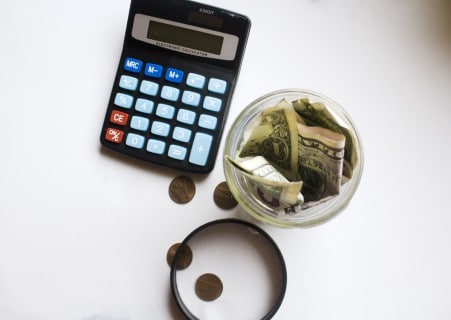7 Things All 20-Somethings Need to Know About Taxes

If you don’t know everything about taxes, you’re not alone — we don’t either. Which is why we sat down with someone who does. Evelyn Barber is a tax professional who has been in the biz for over 30 years. Here’s her take on the most common mistakes young people make when filing their taxes and her advice about what not to do.
1 . When should I file my taxes?
Ideally, as soon as possible. You are required by the IRS to either file your taxes or request an extension by the 15th of April each year (though this date may fluctuate by a day or two depending on if it falls on a weekend — the deadline for 2016 is April 18th). If you file an extension, you will have until October 15th to file your taxes.
However, you should keep in mind that if you owe any money to the IRS and don’t pay by April 15th, you will be charged interest on the amount as well as a penalty for late payment. This is why it is best to go ahead and take care of your taxes as soon as you get your W-2 or 1099 form from your employer — if you put it off until the last minute, it is much more difficult to fix any problems you may run into.
2. Why should I file my taxes?
Obviously, you don’t really have a choice — the IRS will hunt you down if you try to avoid taxes. But on the bright side, filing your taxes isn’t all bad. If you have federal withholdings coming out of your paychecks, you may even end up getting a sweet tax return. On the other hand, you also may owe more money to the IRS, which can quickly become very complicated if you ignore or are unaware.
The only way to know which camp you fall in is to file your taxes and find out. Whatever you do, don’t avoid your taxes — it is extremely difficult to fix your taxes if you pretend like they don’t exist for several years. Do your future self a favor and be responsible now so you don’t have to clean up a mess later.
3. What documents do I need to file my taxes?
Before you file, you will need pay stubs and either your employer generated W-2 or a 1099-MISC. Both are a statement of annual income, but the difference is that a W-2 means your employer has already withheld taxes, while a 1099 means you are responsible for paying all of your own taxes. You will also need a tax form, which is usually a 1040EZ for the simplest method of filing. If you use a tax preparer for filing, he or she may also ask you to bring other documents such as receipts for deductions, and mortgage statements or property tax statements if you own a home.
4. Where do I go to file my taxes? Should I file online?
Filing your own taxes using online programs such as Tax Act or TurboTax is a fairly simple process. Even though Evelyn is in the business of preparing taxes, even she admits that an unmarried professional with a salary, no kids, and no mortgage is better off using one of the dozens of online tax programs available rather than paying someone to do something you could have done yourself.
Your taxes only start becoming more complicated once you’re married, have children, and/or have notable investments. It is also worth noting that if you own your own business, there is a lot of tax planning you will have to do throughout the year to make sure your taxes are all good by April 15th. If you have a more complicated tax situation for any reason and you don’t feel very comfortable or confident about all of the information you need to know, this is the point that it may be worth it to you to have a professional look over your finances and help you file your taxes.
5. What is a tax deduction?
A tax deduction reduces the amount of income that is considered “taxable.” This means that any deductions you are eligible for will be subtracted from your total income and you will only be taxed for the remainder.
Many Americans end up overpaying their taxes every year because of commonly overlooked deductions, which is one reason why having a trained tax preparer ask you the right questions can be beneficial. For example, did you know that you could deduct the cost of student loan interest if it was paid by your parents or your moving expenses to take your first job? If you are doing your own taxes, here is a good guide for what kinds of deductions you may be eligible for.
6. What is a tax credit?
Tax credits can come back to you in the form of a refund depending on the amount of taxes you owe. If your credits exceed your balance, then you will receive a check. There are many different types of tax credits that you may be eligible for, including education credits, low-income credits, child tax credits, etc. However, these credits are not automatically added to your taxes — you have to know which ones you are eligible for and apply for them before you can get them. Here is a full list of tax credits for family, children, work, home, and school.
7. What should you not do?
While there are plenty of mistakes you could make while doing your taxes, Evelyn says that the biggest mistake she sees among young people actually happens long before you file. Unless you want to end up like the many twenty-somethings who find themselves owing thousands of dollars at the end of the year, always make sure that you are holding out enough taxes on the personal allowance section of your W-4 form given to you by your employer.
Social security and Medicare will automatically be withheld from your paycheck, but you are able to control how much federal and state taxes will be taken out of your income. If you don’t have enough being withheld — or none at all — this is how you end up owing a lot of money (that you probably don’t have) to the IRS come tax season.
While it may be nice to have a bigger paycheck each month, you have to realize that you are not escaping having to pay federal and state taxes — you are simply putting them off. Evelyn’s recommendation to most twenty-somethings is to make sure that you are holding out a minimum of 10% for federal taxes and to adjust this number as your income increases. If you end up paying too much, all this means is that you will get a refund check at the end of the year — which is much better than getting a big fat bill.
Last modified on January 10th, 2017






Show Comments +